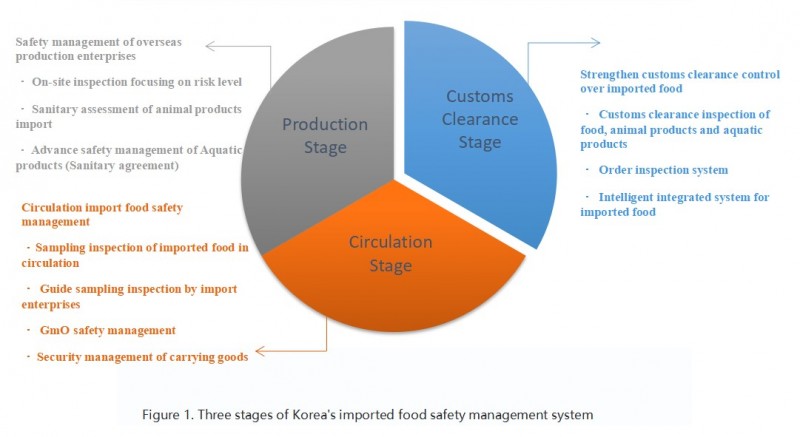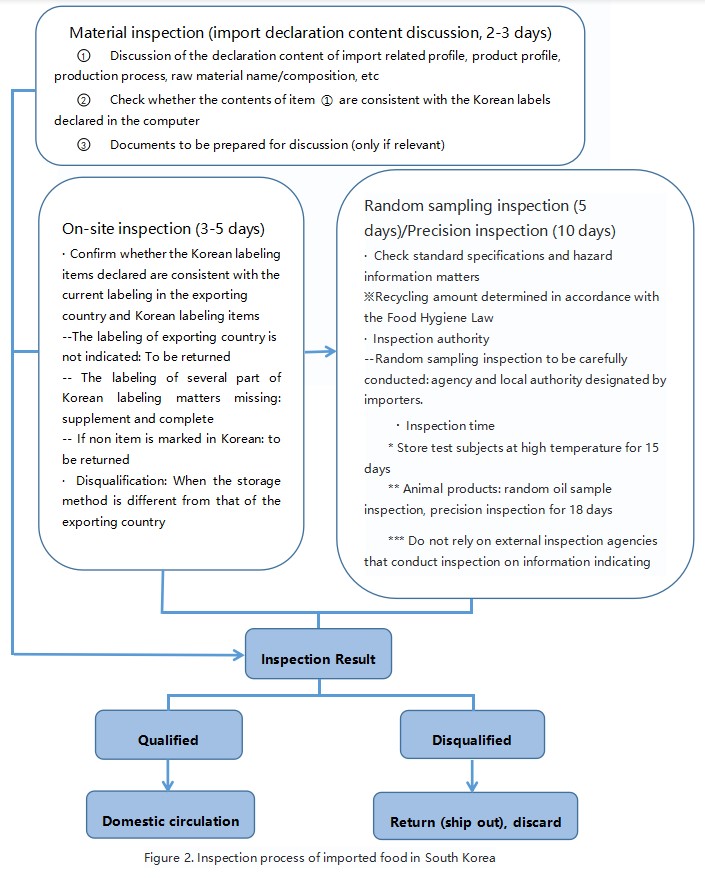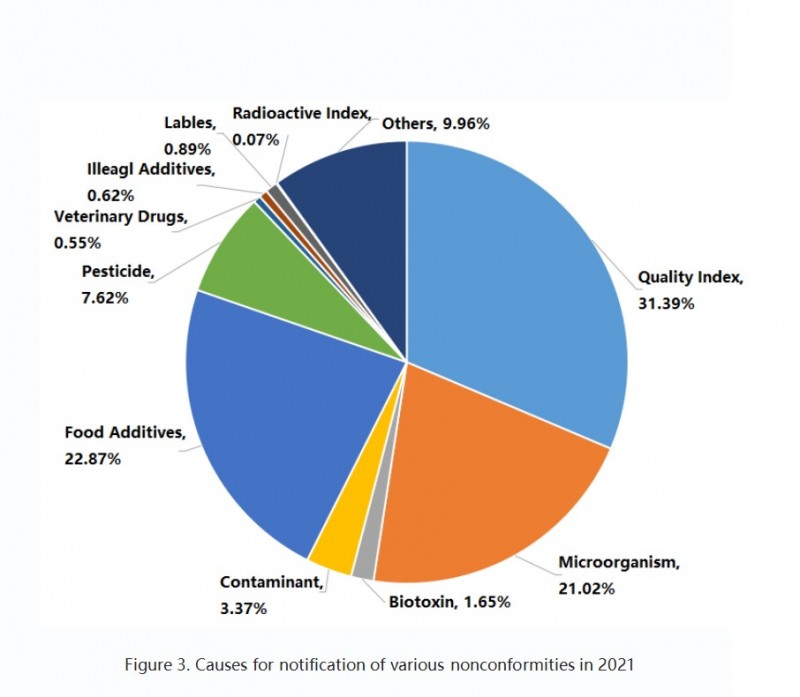In order to facilitate exporting enterprises’ understanding on South Korea's inspection of imported food, South Korea's warning information & notification type, product type and the impact/measures on enterprises, Global Foodmate sorted out the relevant content of South Korea's warning information, in order to provide help to enterprises exporting to South Korea.
1. Three stages of management of imported food in South Korea
South Korea implements a three-stage management on imported food, including production stage, customs clearance stage and circulation stage. South Korea conducts site inspection on overseas enterprises before import, conducts precision inspection, random sampling inspection, on-site inspection and document inspection in customs clearance (import) stage, conducts sampling inspection in the circulation stage. the three-stage safety management system aims to strengthen the safety of imported food. Details are shown in figure 1.
2. South Korea imported food inspection process and methods
The inspection process of imported food in South Korea is shown in Figure 2. ※
Food, food related products and other products for sale in South Korea must abide by the hygiene and safety requirements of South Korea's laws and regulation. Those do not conform to the requirements of products, South Korea will released alerts to unqualified products from all over the world according to the situation on bulletin in MFDS official website.
3. Type of alert information notification and product type in South Korea
For imported products, Korea will make inspections during the import declaration process and notifies unqualified products by alerting. The notification information issued by the ROK is alert notification. Product types include two categories: food and food utensils, containers and packaging. Food involves processed food, food additives, livestock products, aquatic products, agricultural and forestry products, health functional food, etc.
From January 1, 2021 to December 31, 2021, the specific causes of all types of nonconformities are shown in Figure 3.
4. Influence and measures on enterprises
If imported food is recognized to be unqualified after inspection, relevant importers shall take measures such as returning it to the exporting country or discarding it according to Article 21 of the Safety Management of imported Food Special Act and Article 30 and Paragraph 1 of Article 34 of the implementation rules of the Act. After obtaining the approval of the Ministry of Agriculture, Forestry and Food, its use mignt be changed to animal feed (cereals or pulses may be used as feed under the Feed Management Act only in accordance with the standards and specifications of Food, etc., section 7 of the Food Hygiene Law).
importers are required to submit a disposal plan for substandard imported food to the local Food and Drug Administration within one month. If they do not return or destroy substandard imported food for a year, the importer will be subject to a one-year precision inspection.
If the importer still need to import products that were previously found to be disqualified, the exporting companies need to take necessary measures to find out the cause of the nonconforming and improve it. If technical assistance to analyze the cause of the nonconforming is needed, the importer may consult with relevant local Food and Drug Administration.
Please feel free to contact Global Foodmate for other issues related to the inspection of imported food in South Korea. Global Foodmate also provides import and export compliance consulting services in the United States, The European Union, the United Kingdom, France, Spain, Russia, Japan, Southeast Asia and other countries or regions.




